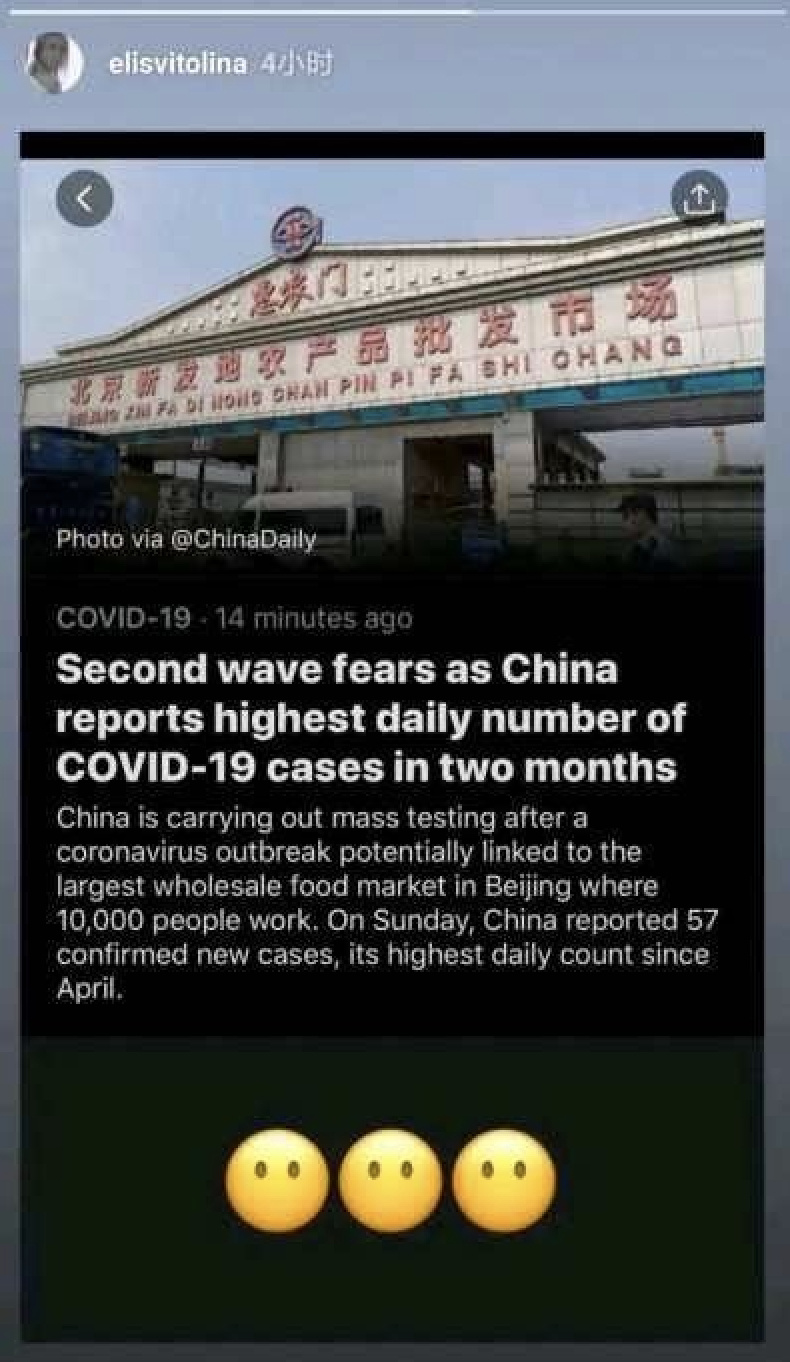Every year there seems to be a "scandal"? The arrogance and prejudice of foreign athletes on Chinese courts
“Those damn Chinese are always coughing.” On September 27, 2025, during the first round of the men's singles match at the China Open, Italian player Musetti made this discriminatory remark after losing a crucial point due to coughing sounds from the stands. Although he later apologized, saying the comment was “only directed at a few spectators who were continuously coughing,” the damage was already done. This incident inevitably recalled an event less than a month earlier, when American tennis player Townsend publicly mocked Chinese cuisine on social media during the Billie Jean King Cup finals in Shenzhen. She sneered at dishes like fish maw with turtle and dry pot bullfrog, calling them “the craziest food I’ve ever seen.”

Every year during the Chinese season, foreign players seem to spark controversy due to inappropriate remarks or behavior. From Svitolina, Rybakina, Badosa to now Musetti and Townsend, “scandals” have almost become a routine during the China season. After the Musetti incident, a journalist’s comment on social media resonated widely. This is not an isolated case but a pattern: foreign athletes come to compete in China carrying a sense of cultural superiority and discriminatory attitudes. These incidents, scattered across annual reports, form a continuous timeline. Nearly every China season sees foreign players causing controversies with inappropriate conduct, followed by the usual scripted apologies.

In Musetti’s apology statement, he mentioned: “This happened during the tense moment of the second tiebreak, but that is no excuse.” This defense reveals a reality: under pressure, people tend to reveal their deep-seated prejudices. Townsend’s apology said: “As a professional athlete, I know how fortunate I am to travel the world and experience cultural differences.” This seemingly sincere apology, however, reflects an issue: these athletes regard Chinese cuisine as “strange” and “crazy,” revealing cultural ethnocentrism at play.

An intriguing detail in similar incidents is that the coughing Musetti complained about might actually have come from French spectators supporting his opponent. This misunderstanding highlights a common feature of many discriminatory remarks: prematurely associating certain behaviors with a specific group. When we analyze these series of events, a more fundamental question arises: why are we surprised by these athletes’ behavior? The answer may lie in the halo effect we place on sports stars.

Tennis players, like professionals in other fields, are ordinary people skilled in specific areas. Musetti is an excellent tennis player, a 2024 Wimbledon semifinalist and Olympic bronze medalist, but that does not mean he possesses sensitivity to cross-cultural understanding. Townsend has achieved great success in doubles, winning the Wimbledon women’s doubles title and ranking world number one, but that does not necessarily translate into respect for Chinese culture. Athletic skill and cultural literacy are two different capabilities. Polish tennis player Rybakina’s upset over former world number one Pliskova at the 2023 Australian Open demonstrated pure professional sportsmanship. This focus on performance is the true essence of sports exchange.

In the face of repeated “scandals,” Chinese audiences need to adjust their mindset. Appreciating athletic skill rather than blindly idolizing personalities may be a healthier attitude. The essence of sports competition lies in performance, not idol worship. Rybakina’s “dark horse” run at the 2023 Australian Open and Swiatek’s progress at Indian Wells are examples of athletes whose performances alone deserve admiration. Viewing athletes as “idols” inevitably leads to disappointment. Sports stars are individuals with exceptional professional skills who, like everyone else, have flaws and biases.

The cultural confidence Chinese audiences should build is to appreciate outstanding skills while maintaining a critical attitude toward inappropriate behavior. The apologies from Musetti and Townsend show that the voices of Chinese fans can make an impact. Musetti wrote in his apology: “I have always admired the Chinese people, and I am truly grateful to play in your country. Since 2018, whenever I compete in China, I have always felt very welcomed.” These words seem particularly contradictory after the incident.

Tennis tournaments are held in China year after year, yet similar incidents continue to occur. In the 2023 Australian Open, Rybakina achieved a career high; in the 2024 Wimbledon, Siniakova and Townsend teamed up to win the title—these pure moments of competition represent the true value of sports exchange. Next time when we sit in the stands or watch on TV, perhaps we should learn to separate admiration for skill from idolizing personalities. The essence of sportsmanship lies in competition itself, not in blindly glorifying athletes.(Source: Tennis Home; Author: Xiao Di)







 Links
Links
 Contact
Contact
 App
App


